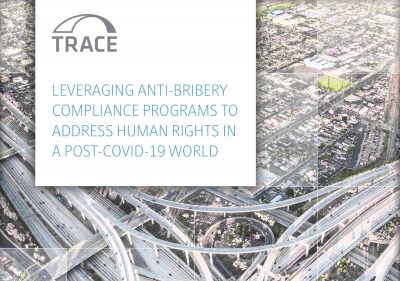I. INTRODUCTION
The COVID-19 pandemic continues to affect virtually every aspect of daily life for individuals and communities around the globe. From travel restrictions to business closings, from quarantines and stay-at-home orders to massive supply chain disruptions, the effects of the pandemic are unprecedented. While it can be difficult to forecast longer-term implications of the crisis, it is becoming clear that every major sector will face new business and human rights challenges. These will include:
Workforce and labor challenges. Employees will continue to be acutely concerned about job requirements that expose them to potential new illnesses. New patterns of discrimination will emerge, and the concept of sick leave as a human right will continue to be debated.
Privacy and surveillance. Companies will continue to create and rely on new technologies and surveillance mechanisms, and communications providers and technology firms will provide data to governments to identify potential illnesses among employees or the public.
Supply chains. There will be radical shifts in global supply chains. Companies seeking to maintain or restore production levels will quickly identify alternative suppliers without robust diligence. Other companies may pressure existing suppliers to increase their capacity. Given high levels of unemployment, risks of worker exploitation and modern slavery will rise.
Security. High levels of unemployment and ongoing economic challenges will lead to an increase in crime and violence.4 Responses by private and public security will inevitably lead to claims of excessive force.
Few businesses will be able to escape these challenges, or others like them, creating the substantial legal, reputational and business risks that frequently arise when allegations of human rights abuse are levied.
Human rights compliance programs are commonly instituted by companies to address such risks. Companies seeking to enhance their human rights approach often will consider leveraging existing anti-corruption frameworks designed to assist company compliance with the U.S. Foreign Corruption Practices Act, the UK Bribery Act and other laws.5 That approach is particularly appropriate given the traditional correlation between corruption and negative human rights consequences, as bribery is cited as a key contributor to modern slavery and labor abuses, factory and building collapses, plane and train crashes, health risks from illegal toxic waste, impunity for security sector abuses, and a host of other negative impacts that will remain germane in a post-COVID-19 world.6 This paper is designed to assist companies in identifying the key components of a human rights compliance program, and how they might be integrated into existing anti-corruption compliance programs. After providing background on the rapid proliferation of human rights legal risks, the paper will discuss the six primary areas where anti-corruption programs can most readily incorporate human rights elements, as well as some relevant distinctions.
Makalenin tamamını okumak için tıklayınız.
Makalelerdeki görüş ve yorumlar yazar veya yazarlara ait olup , Etik ve İtibar Derneği’nin konu ile ilgili düşüncelerini yansıtmamaktadır.

